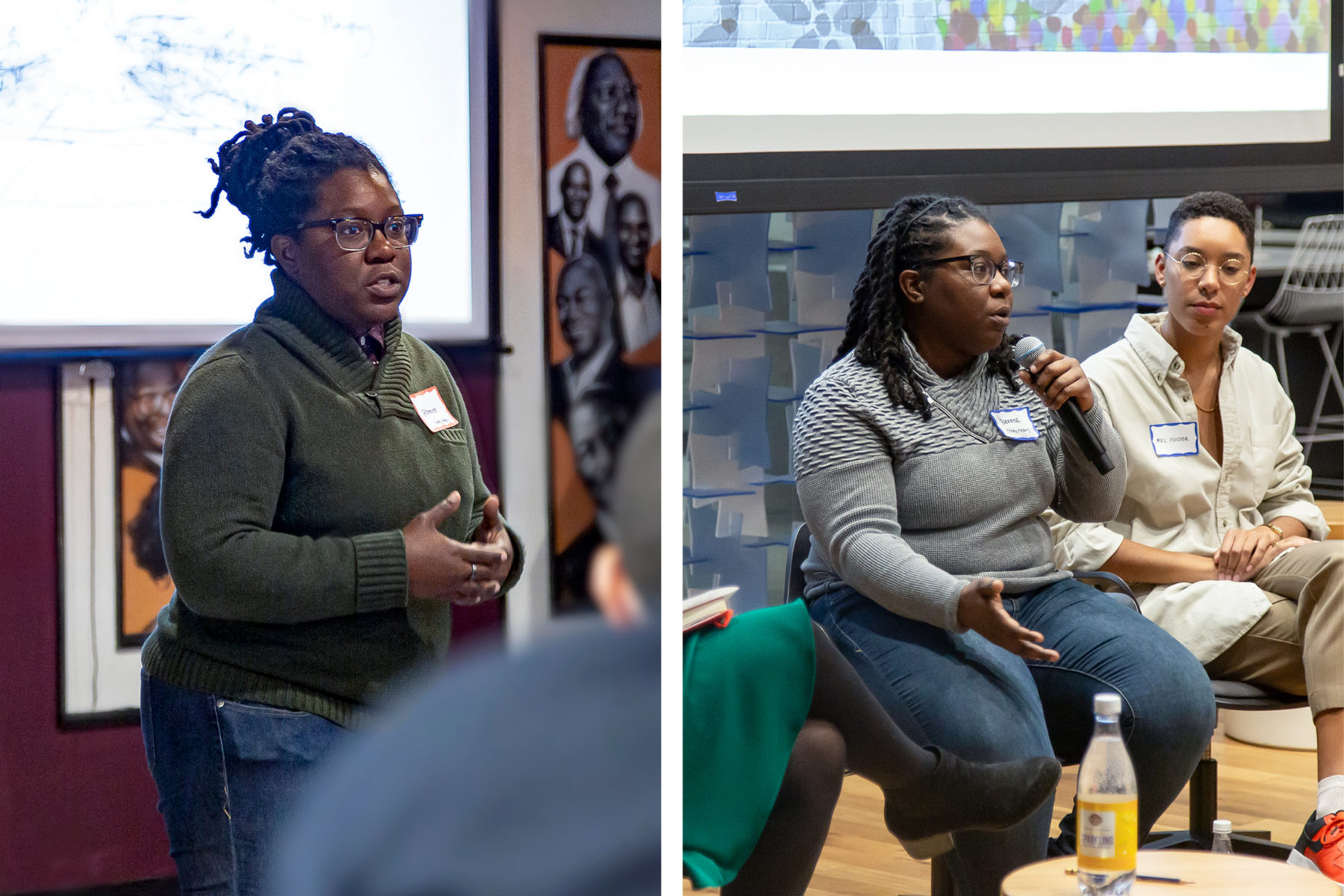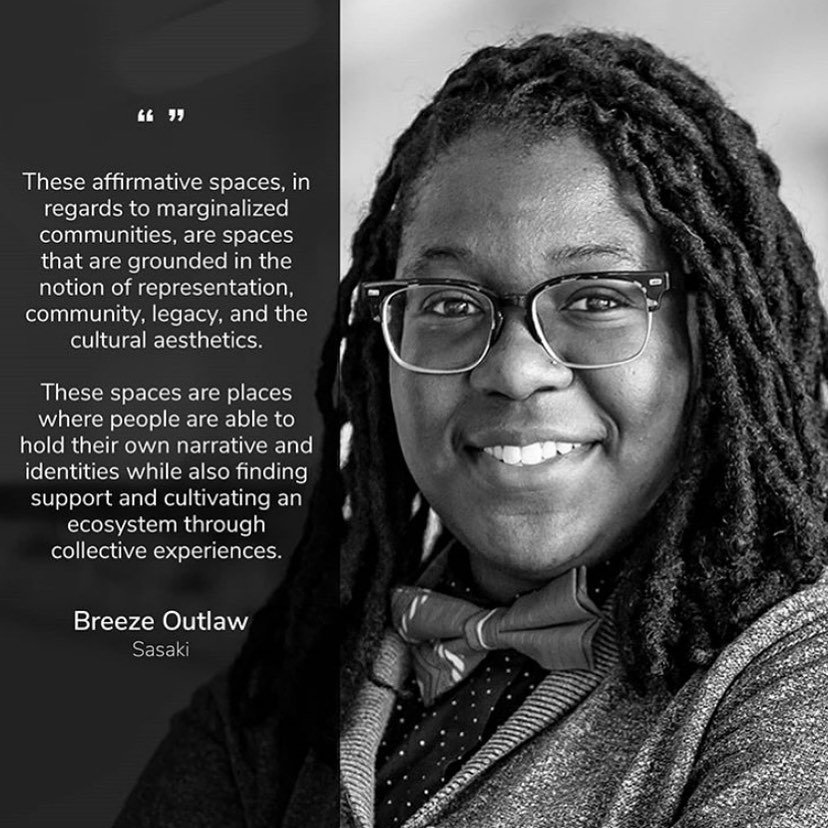Breeze Outlaw Addresses Identity, Equity, and Affirmative Spaces

 Sasaki
Sasaki

Breeze Outlaw, ASLA, (Zie/Zir, They/Them) played an instrumental role in launching the American Society of Landscape Architects’ (ASLA) first LGBTQIA Pride Month celebration. Additionally, they led an ASLA panel discussion about queer identities, gender-inclusive language, and more, and penned an article about the importance of queer-inclusive spaces.
Outlaw also spoke on a multidisciplinary panel hosted by Land8: Landscape Architects Network to discuss how landscape architecture can more effectively encode equity and justice into the built environment.
For their ASLA panel, “Space, Places & Pride: LGBTQIA Perspectives in Landscape Architecture,” Outlaw was joined by Sasaki alum Kiki Cooper (they/them) and Vicki Estrada, FASLA, APA. They discussed the proper use of pronouns, different gender identities, strategies to support inclusive language and gender neutrality, as well as approaches to implementing inclusive practices in the professional environment.
"Today, the contemporary practice of landscape architecture requires a shift that extends beyond diversity and moves towards equitable and just representation."
Breeze Outlaw, landscape designer, on moving past exclusionary, heteronormative practices in the industry
In Land8: Landscape Architects Network’s “Equity, Justice, and Landscape Panel,” Outlaw, Kofi Boone, ASLA, Vernice Miller-Travis, and Fred Brown explored the role designers and planners play in shaping space from myriad perspectives. Held on Juneteenth, the webinar focused on different way to transform the profession through a social equity and racial justice lens.
The conversation spanned a wide breadth of topics, such as, but not limited to, acknowledging the harm the profession has perpetuated against marginalized communities, environmental justice, co-creating plans and designs with the communities they serve, and transforming landscape for black communities by creating affirmative spaces.
Outlaw’s presentation focused on creating affirmative spaces, which they define as spaces that resist systems of oppression embedded in the public realm and, in turn, create an ecosystem for Black people to feel empowered and invested in the space. In particular, Outlaw’s presentation focused on how to create affirmative spaces for Black womxn, whose narratives are often silenced and whose safety is often de-prioritized by design pedagogies.

Outlaw’s presentation for Land8: Landscape Architects Network’s “Equity, Justice, and Landscape Panel” focused on affirmative spaces
Outlaw illustrated the concept of flexible and dynamic affirmative spaces by presenting A Voice at the Table, a research initiative they worked on with Sasaki alum Mel Isidor. The project explores the role that affirmative spaces play in promoting community building, empowerment, and resilience for Black womxn in Roxbury, MA. The team, which also includes Sasaki principal Mary Anne Ocampo, Sasaki associate and planner Elaine Limmer, and Sasaki alum Nayeli Rodriguez, created an intersectional conceptual framework for the project that centered Black womxn’s experiences.
Outlaw explained that one of the project’s core design principles—RETHINK Ownership—led the team to pose questions like, ‘who owns space? Who is the space serving? And how are equity and safety perceived in that space?’ In reflecting on these questions, Outlaw explained that the team challenged notions of equity and safety that currently exist in design pedagogies and often serve to protect whiteness. To learn about the space typologies the team developed to foster community and build resiliency and to learn more about the project, click here.
You can watch the “Equity, Justice, and Landscape Panel” here: